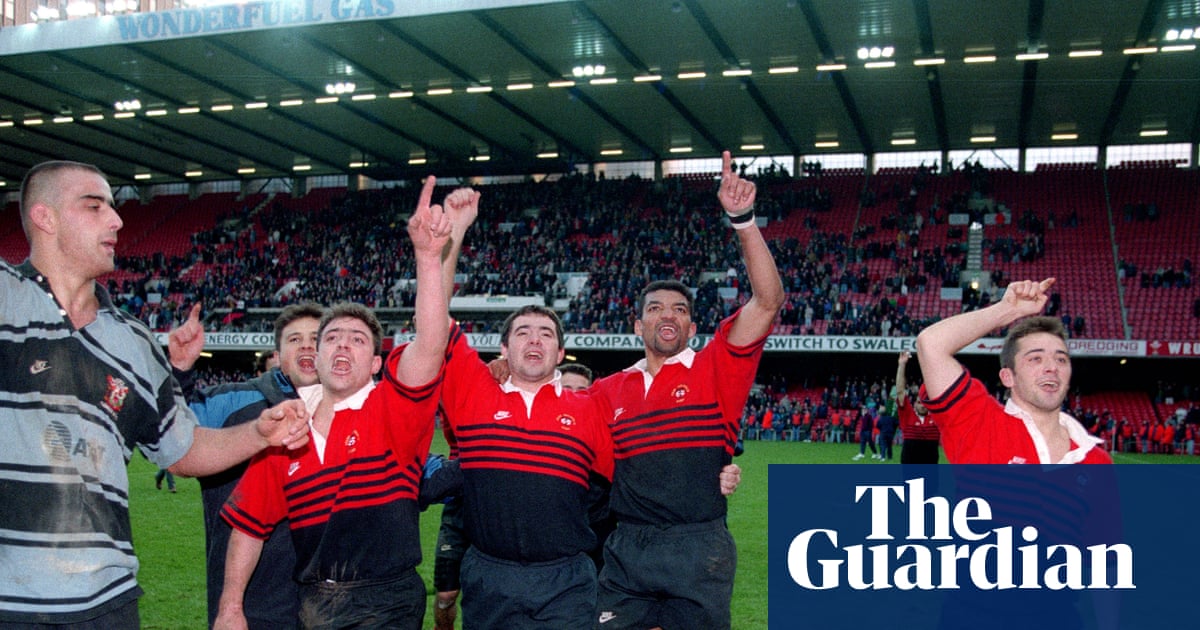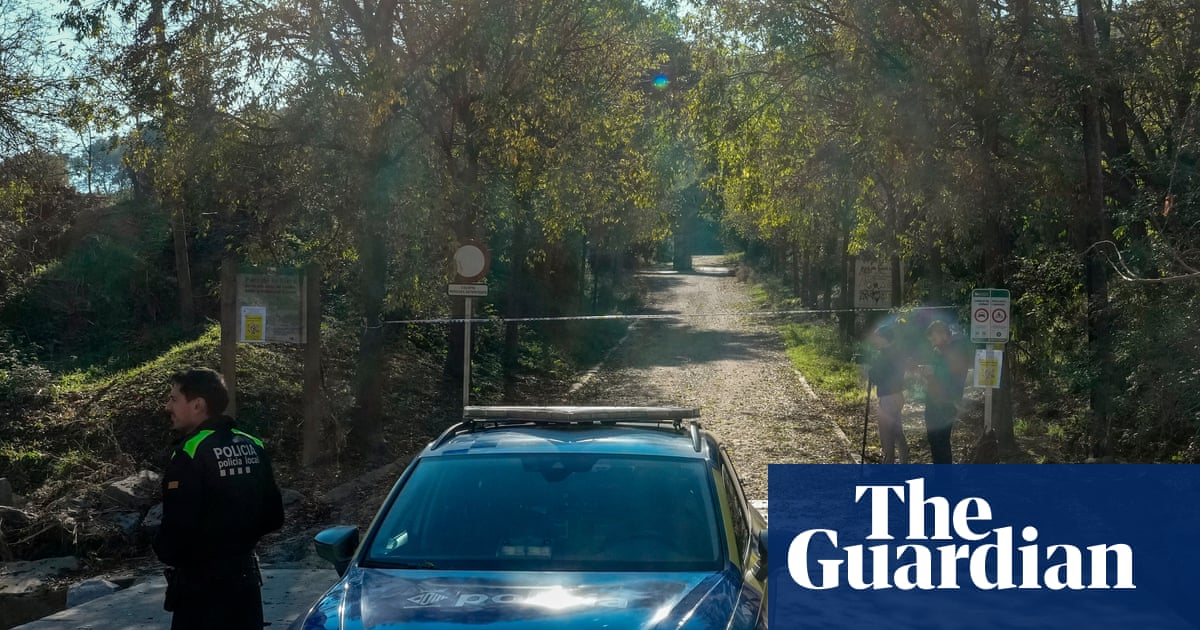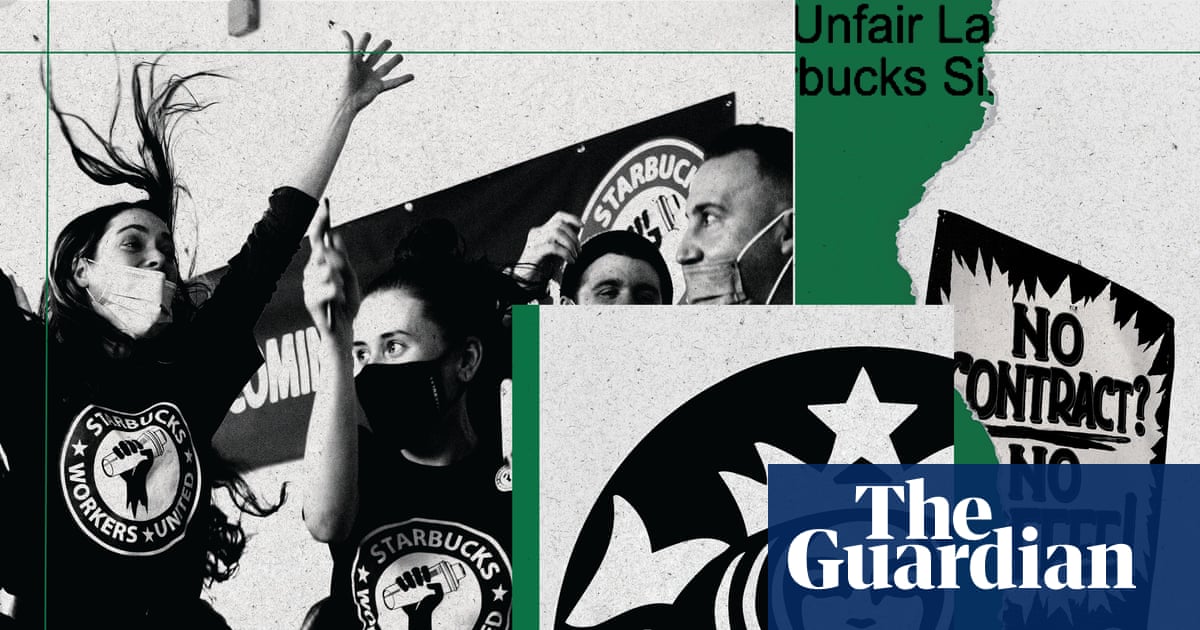Doncaster-born writer Colwill Brown has won this year’s BBC national short story award for a “heartbreaking” entry about shame and the long-term effects of trauma, told in South Yorkshire dialect.
Brown was announced as the winner of the £15,000 award, run in collaboration with Cambridge University, at a ceremony held at BBC Broadcasting House on Tuesday evening.
Her story, You Cannot Thread a Moving Needle, is about a teenage girl whose life is changed following a brutal incident with two boys. Brown says the story was inspired by her upbringing in Doncaster in the late 90s and early 00s. An extract of the story can be read below.
“From first reading, Colwill Brown’s story leapt from the page, alive and immediately compelling, deeply disturbing, a story we couldn’t forget,” said Di Speirs, chair of this year’s judging panel. “The brio of the dialect, the brilliance of both the second person narration and the handling of the passage of time, and above all the exploration of a life critically damaged in a moment, all made this our unanimous winner.”
Brown’s debut novel, We Pretty Pieces of Flesh, was published earlier this year. Reviewing it in the Guardian, Catherine Taylor wrote that the novel “manages to be both boisterous and bleak, life-enhancing and life-denying, familiar and yet wholly original”, adding that “you will probably read nothing else like it this year”.
Also shortlisted for this year’s award were Caoilinn Hughes, Edward Hogan, Emily Abdeni-Holman and Andrew Miller, whose novel The Land in Winter is on the shortlist for this year’s Booker prize. Each of the authors shortlisted for the short story award receives £600. Their stories are published in an anthology, and are available to listen to on BBC Sounds.
“Brown’s Yorkshire-dialect story is a fast, taut examination of repercussions,” said Bonnie Lander Johnson, fellow in English at Cambridge University. “One messy, half-remembered night in a young woman’s life echoes down the years in bouts of rage and shame, in the need for silence to protect friends and the struggle to find a way to live among dwindling opportunities when the same people still wander the same streets each day.”
Alongside Speirs on this year’s judging panel was the novelist William Boyd, previously shortlisted writer Kamila Shamsie, and previous winners Lucy Caldwell and Ross Raisin. Raisin won last year’s prize with his story Ghost Kitchen.
“This year’s winning story demonstrates how seemingly small events can shape our futures, how the thoughtlessness of youth can shadow our adult choices,” said Johnson. “All of this is done in deft, startling prose that opens new possibilities in contemporary literary voice.”
The winner of the young writer’s award, open to 14- to 18-year-olds, was also announced at the ceremony. Rebecca Smith, a 17-year-old sixth former from Sheffield, won the prize for Scouse’s Run, a story set in Yorkshire and written in dialect.
You Cannot Thread a Moving Needle
Next day, they come round your house to mek sure you’ll never tell.
But that’s not what they say when you open door, find them ont step, two dense bodies int daylight. They say, Ey up, and you greet them back, Alreyt. They’re int year above, little un wi dyed black hair all t’goth lasses fancy, and lanky lad, who you’re not sure, but you think might be seeing Rach. Lanky Lad’s alreyt like, but you reckon Rach only fancies him cuz he plays bass in Little Un’s band. You can’t get past his mouth, two fat pink slugs sleeping one below other. His lips, always wet, saliva slick. You don’t know how Rach can snog that mouth, if she is. Little Un, though, proper beaut, barely ever spoke to you till yesterday: mid-afternoon int backyard while your mam wa asleep, you and Kel and Rach, splayed ovver too-long thirsty grass in nowt but string bikinis you all went Primark together to get. Bacardi Breezer Watermelons from offy round corner that’ll serve anyone, long as you’ve gorra backpack to hide it in. Giggle, bottle, clink. Pink liquid tang, swill down quick. Then Lanky Lad and Little Un appeared ovvert fence, surprised your boozy tanning sesh.
Now, Little Un grins. You go warm, arse to tit.
Little Un sez, “Fancy a walk?”
It’s summer so days are borderless, their edges shimmering int heat. Today feels like it’s still part of yesterday, especially since you can’t remember going to bed last neet. You leave your house and stroll between t’lads for ever, or half hour, or five minutes, chatting shit, bouncing on toes while plastic flip-flops go flap flap, thinking, lucky cow, and legs shaky, and Little Un’s grinning at you again. They flank you in a winding too-wide trio dance down slender snicket behind neighbours’ sheds. Nettles and snapdragons poke between fence planks; damp and dog shite sings in your nose. They natter about Sheff Wednesday’s shocking turnout and Donny Rovers’ keggy midfielder, NOFX’s punk purity and reasons Green Day are sellouts, their lips stretched across cheeks into smiles like rubber bands across fingers.
You wonder if your tits stick out far enough beyond your belly, if your nipples’ silhouettes are bleeding through your Hello Kitty tank top, if Little Un will get top’s irony, if hot sweat between your thighs is really your period starting, if it’s pooling int seat of your short-shorts, if it’s trickling down a leg. You wish there wa somewier private you could drop your kegs and check. You wonder if your short-shorts are showing too much arsecheek. If they’re not showing any arsecheek at all. You wish you’d brushed last neet’s booze off your breath, and you wish you’d put your Wonderbra on when you crawled out of bed, head banging, to answer t’door, and you can’t think about owt apart from how flat your tits must look wi’out that bra till you notice crumbling corner of a brick, loose and hanging out somecunt’s garage wall.
Reminds you of younger days, of graze, of flay, of scramble ovver under through broken off battered fence gate wall. Pegging it ovver knackered train tracks, building sites, rubble piles. Lung-rasping cackle, stop dead when brick cement stone gravel bites, snatches flakes off your top layer, leaves runs in your skin down arms, legs, laddered like tights.
You look down now and there’s a new rip across your wrist, dried-blood trail of torn away skin. These days, grazes come from neets ont lash, bottles of voddy downed ont haybales and bench by t’canal. Limbs fall heavy int midnight grass. These days, you wake wi’out memory of cuts and bumps left on fingers, shins. What did you do last neet to get thissun? Warrit brick, or cement, or?
Glass: your trio reaches snicket’s end, emerges intut road, straightens, expands sideways intut new space, like a concertina between two palms pulling away, squeeze-box that appears in your mam’s hands when t’gin flows, plays “Gypsy Maiden” and “Stone Outside Dan Murphy’s Door”. Old red phone box stands before you, one pane shattered into craggy diamonds spat across tarmac. Sun bounces off glass, off old stone wall, off cornfield’s dabbing heads.

 2 months ago
58
2 months ago
58

















































